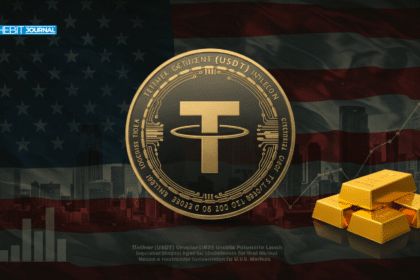Recently, the German and U.S. governments have been actively managing their cryptocurrency holdings, sparking notable market movements. The German government transferred 1,500 BTC, valued at approximately $95 million, to several cryptocurrency exchanges and an additional 400 BTC to major exchanges such as Bitstamp, Coinbase, and Kraken.
Over the last two weeks, Germany has moved 2,700 BTC. Meanwhile, the U.S. government relocated 3,375 ETH, worth about $11.75 million, from funds seized from Estonian entrepreneurs to an unknown address. These substantial transfers could suggest a strategic liquidation or reallocation of holdings, potentially impacting market dynamics and investor sentiment.
This proactive management of crypto holdings by governments highlights the growing integration of digital assets into official financial strategies and regulatory planning. In Germany, the substantial transfers of Bitcoin suggest possible preparation for selling on the open market, aligning with new regulatory frameworks like the Markets in Crypto-Assets Regulation (MiCA) adopted by the European Union.
This regulation is set to significantly change how stablecoins and crypto asset services are managed, potentially influencing how national assets like those held by the German government are handled in the future. Such strategic actions indicate a broader acceptance and understanding of cryptocurrency’s role in global finance, marking a pivotal moment in regulating and utilising digital assets.
German and U.S. Governments: A Strategic Shift Towards Cryptocurrency
This partnership between Germany and the USA represents a fundamental change in the official position regarding cryptocurrencies. In mainstream finance systems, governments have been reluctant or even suspicious about electronic currencies as far back as time can remember; however, this large-scale transfer points to more positive approaches involving Bitcoin (BTC) and Ethereum (ETH), both dominant cryptocurrencies.
Vijay Pravin, CEO of bitsCrunch, commented on the recent performance of Bitcoin, noting that its value has “slumped by 6%” following government transactions. “I think it is the market waking up to potential downside risk. There’s caution in the air among investors that large-scale disposals by the German and U.S. governments could potentially trigger a more pronounced downturn in Bitcoin’s price. If that happens, we could see a higher selling pressure and increased volatility,” he explained.

German and U.S. Governments: A Market Response and Implications
Following the announcement of a $150 million cryptocurrency transfer executed by the German and U.S. governments, the market response was swift and significant. Both Bitcoin and Ethereum saw their prices surge, a reaction that underscores the positive impact of government involvement on these digital assets. Industry observers suggest that such official endorsements could substantially enhance investor confidence, fostering a more stable market environment. This stability is expected to attract more institutional investments, potentially leading to greater liquidity and broader acceptance of cryptocurrencies in mainstream financial systems.
However, this move also raises questions about the long-term implications for monetary policy and financial sovereignty. By including their fiscal strategies into finances planning incorporating cryptosystems used by Germans US governments do not just recognize legitimacy but set an example for other nations too. There may therefore be a re-think over regulation governing cryptocurrencies and their global financial system integration.
Conclusion
The $150M crypto transfer by the German and U.S. governments is a landmark event that not only impacts the market values of Bitcoin and Ethereum but also potentially reshapes the landscape of international finance. The way this is received could set an example for other countries witnessing such moves hence making it more common practice to include cryptocurrencies into national or international deals.
Keep an eye on The BIT Journal for more updates on how the German and U.S. governments manage their cryptocurrency holdings.





























